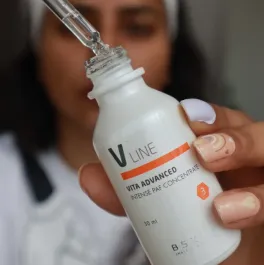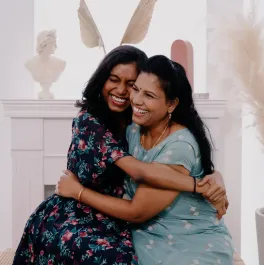Celebrating Everyday Women - Ila
Celebrating Everyday Women - Ila
"Structurally, the one thing that people should shift is the notion that once you have a child with disabilities, you won't have a future." She recounts how this idea has been so internalised that at school, parents would have conversations revolving around their fear for the future of their kids.

Ila is a parent of a cheeky 6-year old Inaya, who has different needs. As a non-speaking child, Inaya can be very expressive with her verbal communication, but formulating them into words is another set of challenges. In the children's book The Twits, Roald Dahl professes, "If you have good thoughts it will shine out of your face like sunbeams and you will always look lovely." This is also how Ila imagines Inaya perceives beauty and interacts with the world.
When Ila is out with Inaya, they sometimes encounter situations where other children might stare at Inaya and wonder, "Why is this kid like this? Why isn't this kid talking to me?" The parents of those children would not feel equipped to respond to their child, so Ila would explain, "Oh, she's different. She doesn't know how to speak yet, but she's friendly. She will talk to you if she feels like it."

"Honestly, it's really rough because in Singapore I feel like we are not informed about what it means to have disabilities, and so there is often a kind of fear, or defensiveness or awkwardness." Ila explains that they sometimes have good exchanges with strangers about Inaya's condition, but it has still been very challenging on a systemic level. "Even though there are support system for neurotypical children, there is no existing childcare for children with different needs, so mostly the parents would have to hire helpers to be caregivers of these children."
For Ila, so much of this comes down to education, awareness, and understanding across different levels, from children, parents, schools, and governments. "Structurally, the one thing that people should shift is the notion that once you have a child with disabilities, you won't have a future." She recounts how this idea has been so internalised that at school, parents would have conversations revolving around their fear for the future of their kids. This shared fear is so overwhelming that it feels like there is no space to even imagine other possibilities because there is no future to begin with.
"I wish there was a shift on a large scale so that we could have that space to kind of be okay with thinking yeah, our future might look different, but at least there are options in how it may look."



















